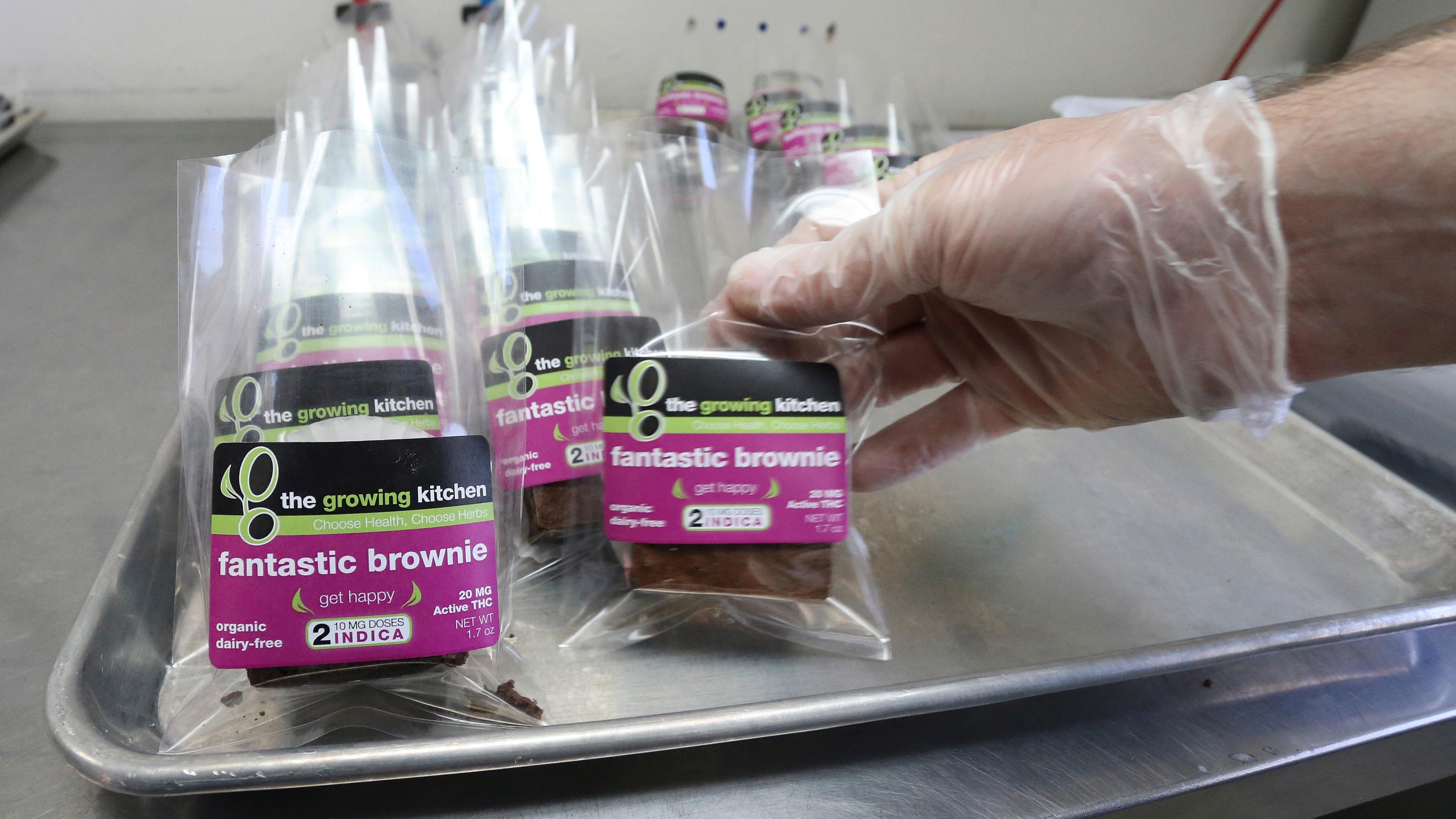
This week marks the one year anniversary of the first legal sale of recreational marijuana in Colorado and the U.S. Since then, millions of dollars have poured in as tourists from around the world have come to get high in Denver.
You can see the first marijuana sale. It’s immortalized in a picture on the wall inside the 3D Dispensary in Denver. In it, more than a dozen news cameras are trained on the owner, Toni Savage-Fox.
“We had so many reporters in here that we had to do the first sale twice,” said Savage-Fox.
The move to recreational has been a lucrative one for Savage-Fox. Sales this year were ten times what she made in an average year with medical marijuana, about $10,000 a day. She says she’s finally profitable and can pay some people back.
“Over the course of four years of begging and pleading with family and friends to keep my lights on, or pawning my wedding ring at one point in time, and selling every asset we had, it’s an amazing feeling to be able to write paid in full on some of those notes. And those people are in shock,” said Savage-Fox. “They never thought they were going to get their money back.”
Brian Vicente was there for the first sale. He’s one of the authors of Amendment 64, which legalized recreational marijuana.
“It was this intersection of a massive social change, changing marijuana laws, with this opportunity for commerce,” said Vicente.
Candy, cookie conundrum
Vicente’s says he’s generally pleased with how recreational pot has rolled out. But there have been hiccups. For instance, the issues that cropped up around edible marijuana.
“I think this is an area that we didn’t necessarily foresee having the problem that we do,” said Vicente.
Two high-profile deaths were linked to edible marijuana earlier in the year. Parents also started voicing concerns about the gummy bears and Swedish fish that dispensaries infuse with pot.

Vicente supports tougher standards, like banning certain types of candies and demarking edibles so they’re easy to identify outside the package. That puts him at odds with the industry.
“If you cut corners now, and those products aren’t demarked and they get in the hands of kids, you know, that threatens everything we worked for,” said Vicente.
He’s serious, the federal government has made it clear they want states to keep pot out of the hands of kids. The state Legislature is expected to tackle the edibles issue for the second straight session, which begins in January.
By and large, problems with recreational marijuana have been isolated incidents, according to Denver City Councilman Chris Nevitt.
“The sky did not fall,” said Nevitt. “Money fell from the sky, but the sky did not fall.”
The city collected $7.6 million in taxes through the first three quarters of the year. The state has collected more than $43 million in taxes and fees on recreational marijuana through October.
Where to smoke?
But, at least in Denver, there’s still the problem of where tourists can use the product.
“They can buy, where can they smoke it? That’s not a question that we have answered adequately,” said Nevitt.

The city, Nevitt says, will have to revisit issuing licenses for pot smoking clubs at some point.
In the meantime, police issued 668 citations for public consumption in the first three quarters of this year in Denver. That’s up 471 percent compared to the same time a year before.
Nevitt said Denver may be the capital of marijuana, “But we also wanted to say that there are rules around this. It’s not the wild, pot-smoking west.”
Money, and more, still at issue
Nevitt is involved with a group trying to solve another problem: access to bank accounts. A state-chartered credit union catering to marijuana businesses hopes the Federal Reserve will soon allow them to open accounts sometime in January.
“The new credit union might be an answer for super-rich dispensaries that have a lot of extra money,” said Sean McAllister an attorney and pot proponent, who notes that fees are expected to be very high. “It’s not going to be an answer for a lot of the mom and pop shops.”
For that, the federal government would have to loosen restrictions on all banks doing business with pot companies.
According to McAllister, business is good, at least by one measure.
“There used to be two or three lawyers in Denver that did all the marijuana work and now there’s 50.”
Taken together medical and recreational pot stores have sold more than $574 million worth of marijuana through October.
That concerns moms like Gina Cabone, with Smart Colorado, a group that advocates strict restrictions on commercial pot.
“We’ve learned from alcohol and tobacco, as you normalize things, commercialize things, make it more available, they do get into the hands of youth,” said Carbone.
It will probably be years until the true impact of recreational marijuana on kids is known.
Price war looms
Meanwhile 3D Dispensary owner Toni Savage-Fox is bracing for a different problem. More recreational dispensaries are expected to open next year, and big industrial grows will come online. She speculates a flood of new product will cause a crash in the price of recreational marijuana.
“You know I’m honest. I’m a realist. And so hopefully that will keep me alive,” said Savage-Fox. “This has been an incredibly cutthroat industry medically. And recreationally I’ve been able to coast here the first year. There hasn’t been that much competition.”
Though all those new businesses make some nervous, the competition will certainly be good for one group: consumers.







